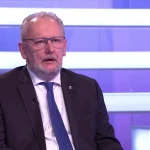Together with Spain and Luxembourg, Croatia has been given a reasoned opinion for failing to ensure complete transposition into national legislation of the Directive on the Energy Performance of Buildings.
The directive introduces new elements to strengthen the existing framework, such as minimum requirements regarding the energy properties of new buildings, electromobility and charging stations, as well as new rules on heating and air conditioning system inspections.
The directive is aimed at modernising the construction sector in terms of technological improvements, and increasing the low rates of reconstruction of buildings to improve the energy efficiency of the EU housing stock.
The revised provisions should have been transposed into national legislation by 10 March 2020. In May 2020 all three member states received a formal warning over failure to transpose the directive.
After reviewing national measures, the EC considers that the transposition of the directive into national law in Croatia, Spain and Luxembourg has not been completed and is now sending them a reasoned opinion.
The countries have two months to respond and if the EC does not receive a satisfactory response, it can decide to refer their cases to the Court of the EU.
The second reasoned opinion, which Croatia received along with eight other member states, refers to the Open Data Directive.
The EC wants the nine member states to provide information on how EU rules on open data and the re-use of public sector information from the Open Data Directive have been transposed into national law.
The deadline for this expired on 17 July 2021 and the member states concerned have not stated all national measures despite formal warnings sent on 30 September 2021.
The directive, adopted on 20 June 2019, aims to use the advantages of using open data and help enable the re-use of the public sector’s huge and valuable base of data resources.
This will reduce obstacles to the entry of small and medium companies into the market because costs of data re-use will be reduced, more data will be made available and new business opportunities will be created owing to the exchange of data through the Application Programming Interface.
The directive encourages the development of innovative solutions such as mobility applications, it increases transparency by enabling access to publicly funded research data and supports new technologies, including artificial intelligence. If it does not receive a satisfactory response in two months’ time, the EC may decide to refer the case to the EU Court.
The EC, as the guardian of the Treaties, launches EU law infringement procedures based on its own investigations or acting on citizens’, companies’ or other stakeholders’ complaints.
Most of the cases are resolved before they are referred to the Court of the EU.
For more, check out our dedicated politics section.










